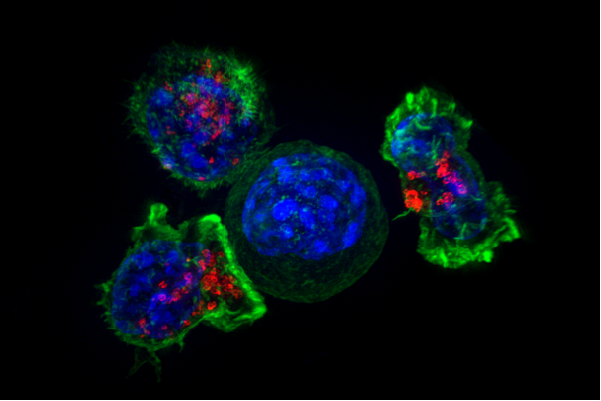
Seattle Children’s, with participating members Children’s Hospital Los Angeles, Children’s National Health System and BC Children’s Hospital, has launched CureWorks, an international collaborative of leading academic children’s hospitals determined to accelerate the development of immunotherapy treatments for childhood cancer. CureWorks focuses on expanding immunotherapy trials and patient access around the world, as well as sharing data and collective expertise to advance novel cell therapies.
“I am pleased to announce that the Children’s Center for Cancer and Blood Diseases has joined CureWorks, an international collaborative of leading academic children’s hospitals determined to accelerate the development of immunotherapy treatments for childhood cancer,” said Children’s Hospital Los Angeles President and CEO Paul S. Viviano.
“CAR T-cell therapy has been called the single greatest therapeutic advance in childhood leukemia in a generation,” said Alan S. Wayne, director of the Children’s Center for Cancer and Blood Diseases at Children’s Hospital Los Angeles and professor of Pediatrics and Medicine at the Keck School of Medicine of USC. “Through CHLA’s partnership with CureWorks, we expect to speed the development of this important new therapy to provide more effective treatment for children and young adults afflicted with many types of cancer in the U.S. and around the globe.”
Member hospitals will have the option to participate in clinical trials offered through CureWorks, allowing their patients access to groundbreaking cancer immunotherapies in their own community. Once these trials are open at a CureWorks member hospital site, immune cells will be collected from the patient and sent to Seattle Children’s Good Manufacturing Practice (GMP) facility. There, the T cells will be reprogrammed to express the CAR protein, enabling them to recognize and fight cancer. The newly engineered, cancer-fighting T cells will then be shipped back to the patient’s health care team for infusion. In addition to facilitating production of immunotherapy treatments, CureWorks will also streamline the clinical trial enrollment and coordination process for members.
“We believe a unified effort among leading children’s hospitals is the best way to drive the discovery of new therapies for pediatric cancer,” said Mike Jensen, executive director of CureWorks and director of the Ben Towne Center for Childhood Cancer Research at Seattle Children’s Research Institute. “Our hope is that through this collaboration, we’ll be able to more quickly develop treatments with fewer side effects, better remission rates and, ultimately, enable more kids with cancer to grow up and realize their full potential.”
CureWorks members will also have access to new technology shared across the collaborative, and the ability to launch clinical trials at multiple clinical sites with support from Seattle Children’s GMP facility.
To see the clinical trials being offered through CureWorks, please visit the clinical trial pipeline webpage.
